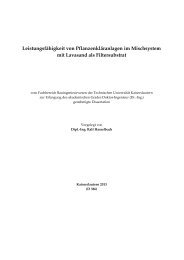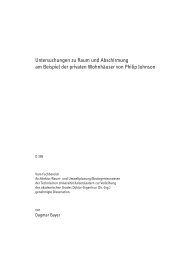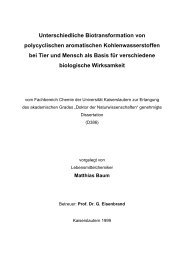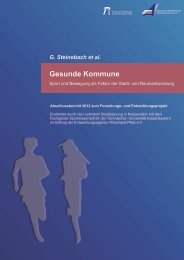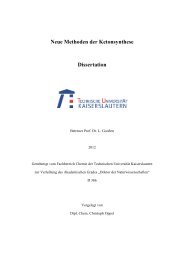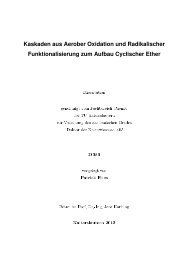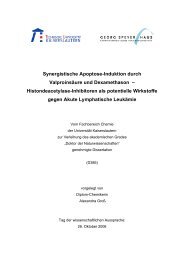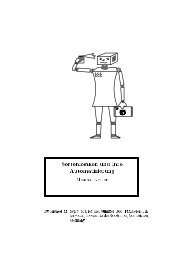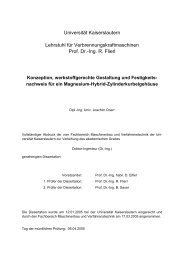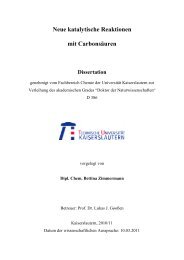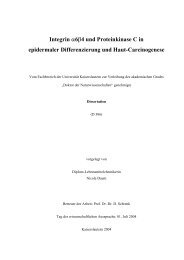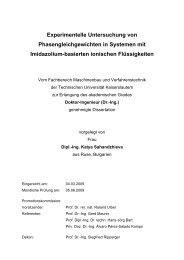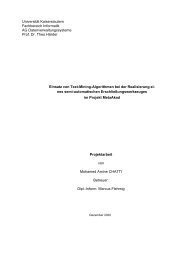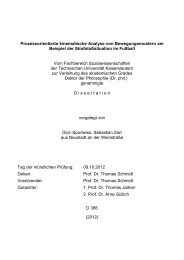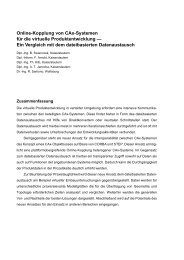ecology of phasmids - KLUEDO - Universität Kaiserslautern
ecology of phasmids - KLUEDO - Universität Kaiserslautern
ecology of phasmids - KLUEDO - Universität Kaiserslautern
You also want an ePaper? Increase the reach of your titles
YUMPU automatically turns print PDFs into web optimized ePapers that Google loves.
Adult female feeding preference & nymph performance 51<br />
manner and favored the formerly disregarded plant species. This result was supported by pair wise<br />
comparisons <strong>of</strong> choice-tests that shared female individuals. The exclusion <strong>of</strong> females that were not<br />
shared between these dual-choice feeding trials always resulted in a pattern consistent with the<br />
preference pattern for all females (data not shown).<br />
mean acceptability index (MAI)<br />
100<br />
80<br />
60<br />
40<br />
20<br />
0<br />
Median<br />
25%-75%<br />
Min-Max<br />
(1) Pmarg - Phisp (2) Pmarg - Pgran<br />
Figure 4-1: Comparison <strong>of</strong> paired dual-choice preference tests <strong>of</strong> M. diocles adult females. Identical individuals<br />
were used in both tests to control for influence <strong>of</strong> prior feeding experience (for details see text; Wilcoxon paired<br />
signed rank test, T = 21, N = 21, P < 0.01).<br />
4.2.3.2 Choice <strong>of</strong> reference plant species<br />
A further problem inherent with dual-choice feeding trials lies within the choice <strong>of</strong> the reference plant<br />
species. The observed preference pattern could result from discrimination towards a particular plant<br />
species and change if an alternative reference was <strong>of</strong>fered (Richardson & Whittaker 1982). Hence the<br />
preference pattern may not be consistent if observed with different plant species serving as reference.<br />
To account for this problem I conducted a series <strong>of</strong> dual-choice feeding trials using Piper hispidum as<br />
reference plant species and compared the resulting MAI with preference assessed against P. marginatum<br />
in pair wise Mann-Whitney U-tests (test species: P. aequale, P. dilatatum, Phil. sp., P. reticulatum).<br />
Changing the reference plant species did not change the overall preference pattern <strong>of</strong> M. diocles adult<br />
females. MAI resulting from dual-choice feeding trials with different reference plant species<br />
(P. marginatum and P. hispidum) did not differ (all p > 0.35).



